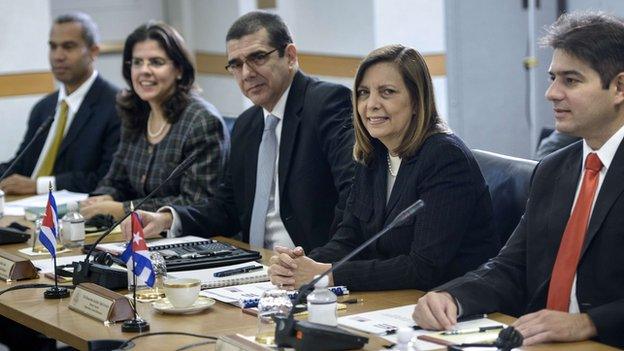Obama-Castro meeting: When ‘historic’ seems apt
- Published
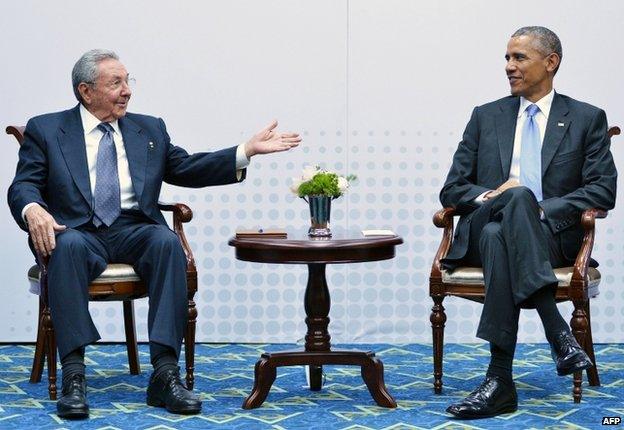
The talks were low-key in slightly uncomfortable surroundings
Words like "historic" are often overused by politicians wanting to lend extra importance to events in which they are involved.
But few would have disagreed with US President Barack Obama when he used that very word to describe the first sit-down meeting between a US president and a Cuban leader in more than 50 years.
The meeting in a small nondescript room in the Atlapa conference centre in Panama City on the margins of the Summit of the Americas did not look historic.
Mr Obama and Raul Castro sat, a little uncomfortably, on chairs which looked slightly too small.
There were no flags, no ceremony, no fanfare.
Just a table with some flowers and a lamp standing between the two leaders, who have up until now been separated by five decades of animosity.
Harking back
President Castro is not one to dismiss the past easily.
In his speech at the summit, he in fact reeled off a long list of grievances, recounting several attempts by the US to overthrow and destabilise the Communist government in Cuba.
President Obama also stressed repeatedly that differences between the two countries remained, and were likely to persist in the future.
But just five months ago hardly anyone would have billed this Summit of the Americas as a place where a rapprochement between Cuba and the US would become so visible.
In fact, the Panama summit looked set to be one of confrontation.
At the previous summit in Cartagena, the host, Colombian President Juan Manuel Santos, had announced that there would not be another such gathering unless Cuba was allowed to take part.
With the US objecting to Cuba's participation, all was set for a stand-off between the US on the one hand and Latin American nations, who backed Cuba, on the other.
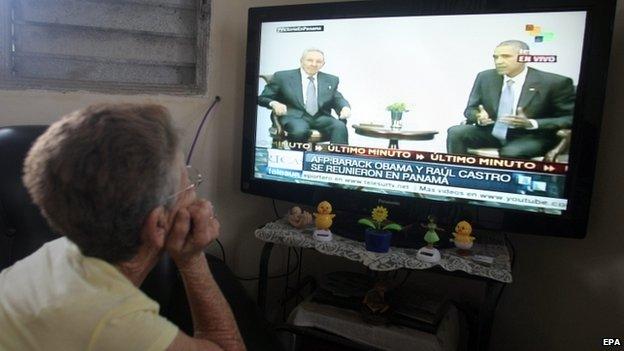
The meeting was shown on TV and followed by many Cubans.....
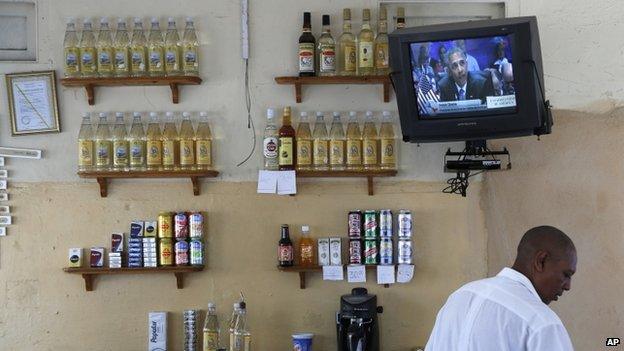
..... although this Havana bartender took less interest
Surprise announcement
This was the case until the 17 December, when Mr Obama and Mr Castro gave simultaneous TV addresses announcing they would work towards re-establishing diplomatic ties.
The announcement came as a surprise to almost all but those who had been involved in the secret negotiations leading up to it.
Progress since then has not been fast, but it has been steady.
Just a day before the summit kicked off, President Obama said that the State Department had recommended removing Cuba from the US list of countries which sponsor terrorism.
Its presence on the list has been a major hurdle to closer ties and its removal is now tantalisingly close.
The two countries have not yet re-opened their embassies but it now seems a question of when rather than if that may happen.
Revolutionary passion
There have been stumbles along the way.
Less than a month ago, Raul Castro lashed out at President Obama for declaring Cuba's ally Venezuela a threat to national security.
He said that "the US needs to understand once and for all that it cannot seduce or buy Cuba, just as it cannot intimidate Venezuela".
And in his speech at the Panama summit, Mr Castro at one point got so impassioned while recalling the revolution which he and his brother Fidel led that he had to stop himself.
"The passion oozes out of me when I speak about the revolution," he said.
"I apologise to Mr Obama who is not responsible for what happened before him," he added.
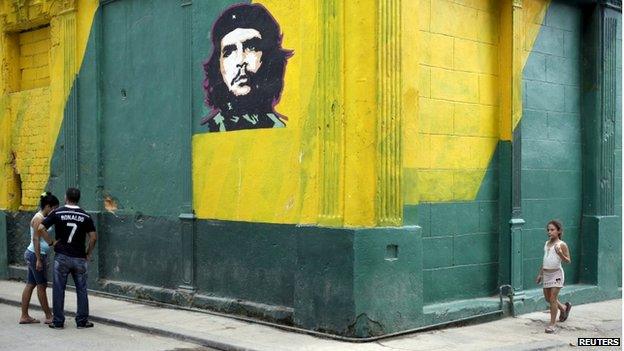
Raul Castro said he was still moved by revolutionary passion
Candid exchange
There seems to be a mutual understanding that the two can agree to disagree.
Speaking at a news conference after the meeting, Mr Obama described his conversation with Mr Castro as "candid".
"We're able to speak honestly about our differences and concerns," he said.
And he stressed that the United States would not stop talking about human rights and democracy, two things the US believes are lacking on the Communist-run island.
But the way to go about raising these issues, he said, was by persuasion and not confrontation.
Despite their differences, President Obama said he was cautiously optimistic for the future.
And, as if wanting to further stress the historic nature of the meeting he had just held with his erstwhile rival, he said: "The cold war is over.
- Published10 April 2015
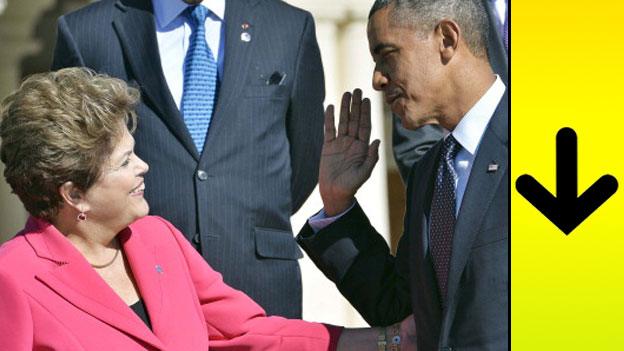
- Published9 April 2015
- Published8 April 2015
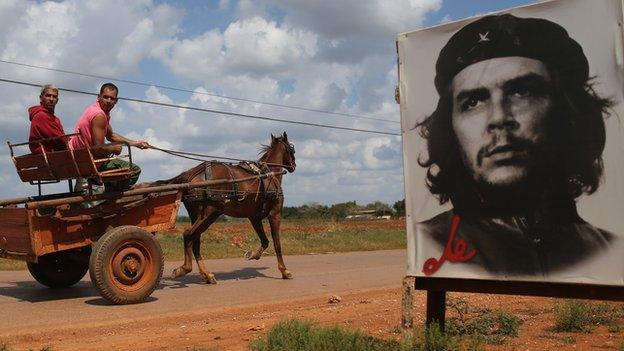
- Published27 February 2015
